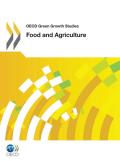This report addresses two of the defining challenges of the twenty-first century: achieving environmental sustainability and turning the vision of decent work for all into a reality. It shows that not only are both challenges urgent, but they are also intimately linked and will have to be addressed together. While it is certain that environmental degradation and climate change will increasingly require enterprises and labour markets to react and adjust, the goal of environmentally sustainable economies will not be attained without the active contribution of the world of work.
The European Commission and the International Labour Organization have combined efforts in reaction to the deep crisis that hit the global economy in 2008. The aim of this joint project is to examine policies that will lead not only to a quicker recovery but also to a more sustainable, environmentally friendly and equitable global economy. 'Towards a Greener Economy: The Social Dimensions' aims to promote a clearer understanding of the nature of the green economy and its implications for labour markets, especially the reallocation of jobs from high- to low-polluting sectors.
This report - which contains case studies of Melbourne, Vancouver, Paris, Toyama and Portland - offers a comprehensive understanding of the compact city concept, its role in today’s urban contexts, and the potential outcomes of compact city policies. It examines compact city policies across the OECD in relation to green growth objectives and the role of indicators in tracking policy performance. The report proposes compact city strategies and ideas for achieving better outcomes and highlights governance challenges for implementing practical compact city strategies. Importantly, it highlights how urban spatial policies can help foster economic growth and development while preventing environmental degradation and climate change. The report thus addresses a central concern of the OECD Green Growth Strategy, and provides an important contribution to it.

The report takes stock of the latest developments in the overall economic and social conditions in EECCA countries, market signals and environmental governance arrangements that may facilitate the shift towards green growth, and discusses possible barriers and measures to overcome them. At the same time, the report delineates the possible elements of a more coherent and effective reform agenda. In such a way the report aims to serve as background and a starting point for follow up development of green growth policies in EECCA.
The report contains profiles of the following countries: Armenia, Azerbaijan, Belarus, Georgia, Kazakhstan, Kyrgyzstan, Moldova, Russian Federation, Tajikistan, Turkmenistan, Ukraine, and Uzbekistan
